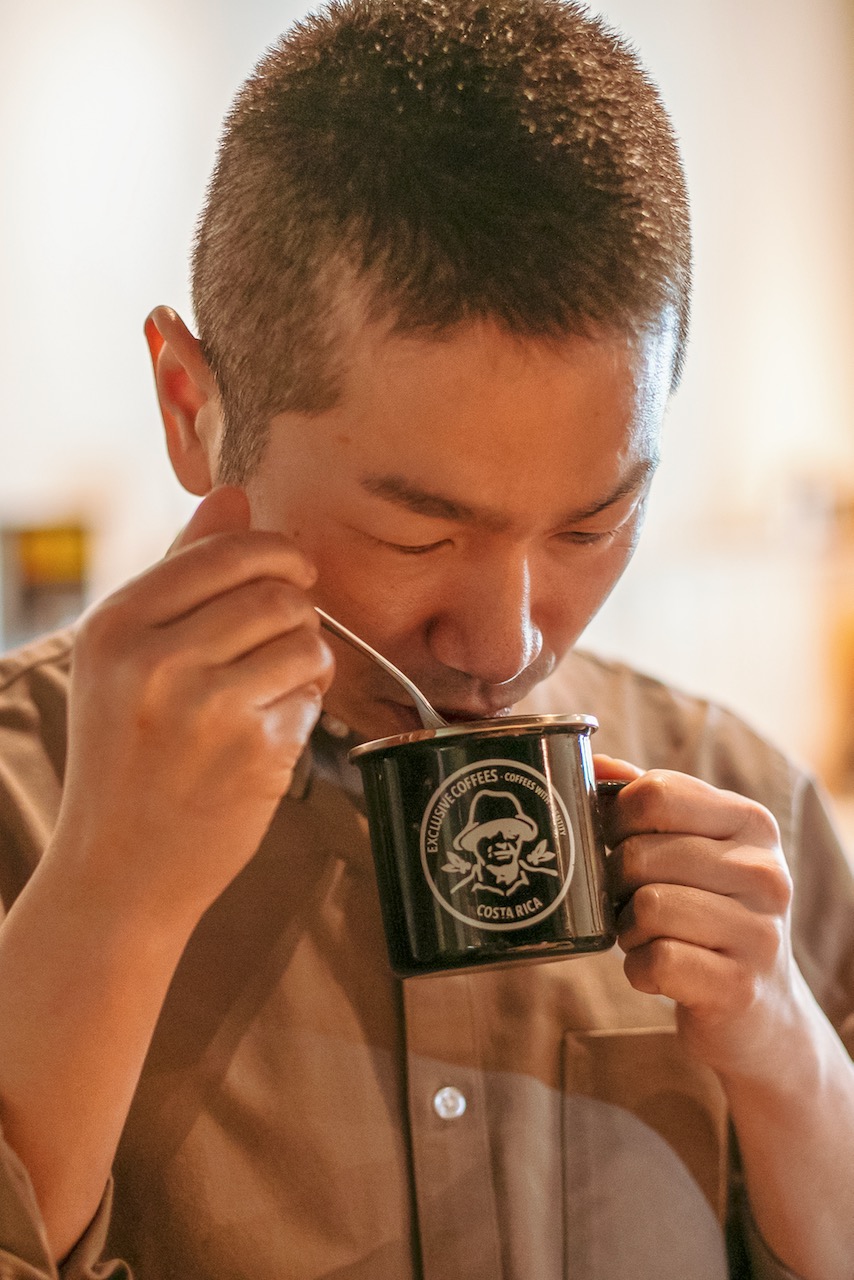
Helping Cups of Coffee for Family Enduring Adversity
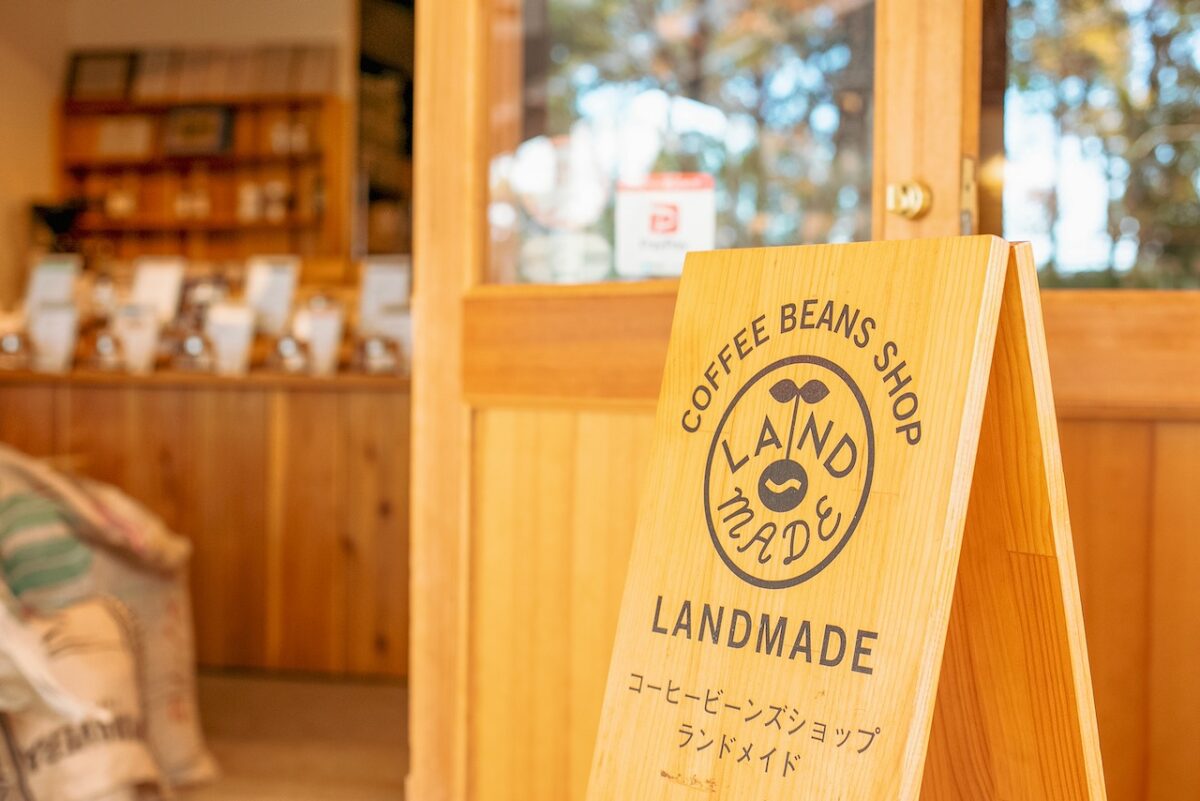
Masato Ueno runs LANDMADE, a specialty coffee roastery in Port Island of Kobe City, western Japan. Located in a government-designated hub for medical research and development and operated by an all-women staff, LANDMADE serves coffee to families of pediatric cancer patients at least once every month – all unique characteristics not seen at most other roasteries.
“I just keep doing what I can,” Ueno says. He has lived firmly by that motto and let it guide his actions. Our conversation has revealed a glimpse of his outlook on life and how he has come to adopt it.
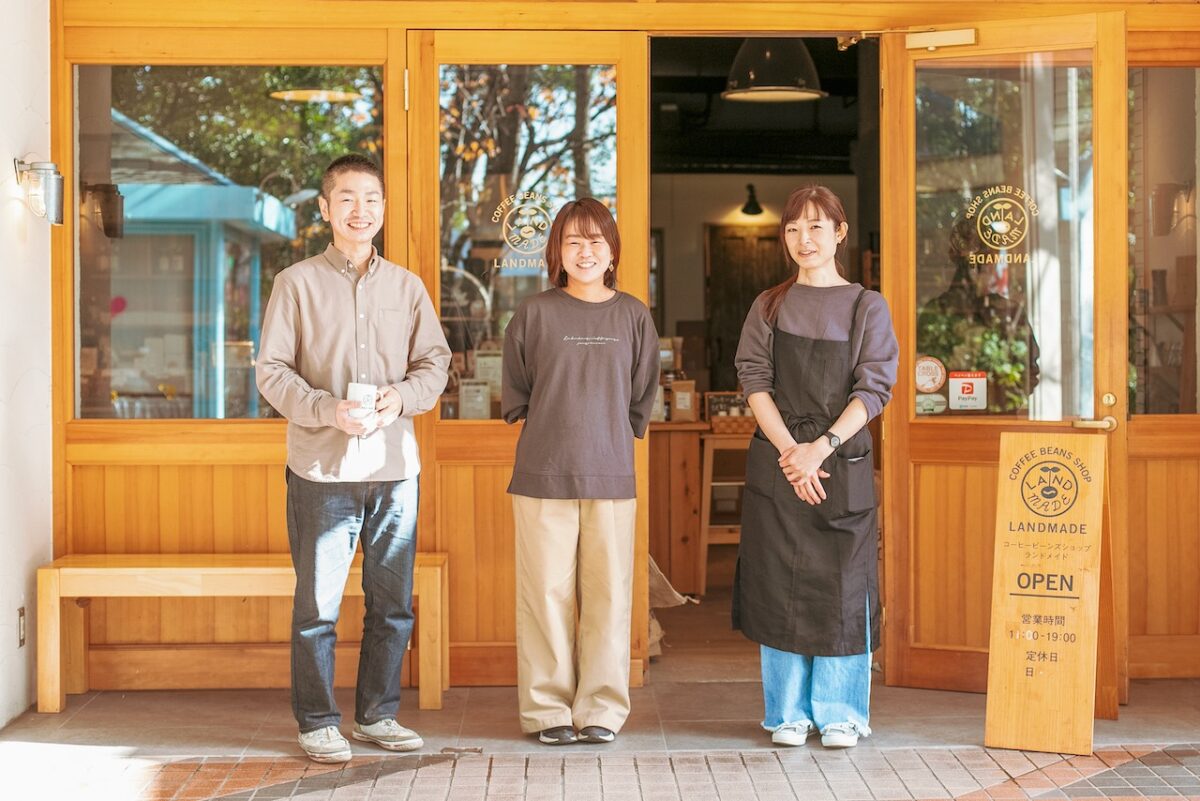
No future for worker-unfriendly Industry
LANDMADE has three core employees, which is in itself not unusual for a small roastery. What sets LANDMADE apart is that they are all mothers with small children. One of them is a single mother, and another takes a 150-minute train ride to commute to work. LANDMADE centers around wholesale, but it also sells coffee beans and processed products to consumers. These women roast coffee beans and ship them out all while handling other tasks inside the store.
“Every now and then, we have to close the store or miss business meetings and negotiations when they need to take care of their children. Some negotiations have fallen through because of that. But I don’t care at all because there are many other potential customers across Japan and abroad. On the other hand, every child has only one mother. It is clear who I should prioritize.”
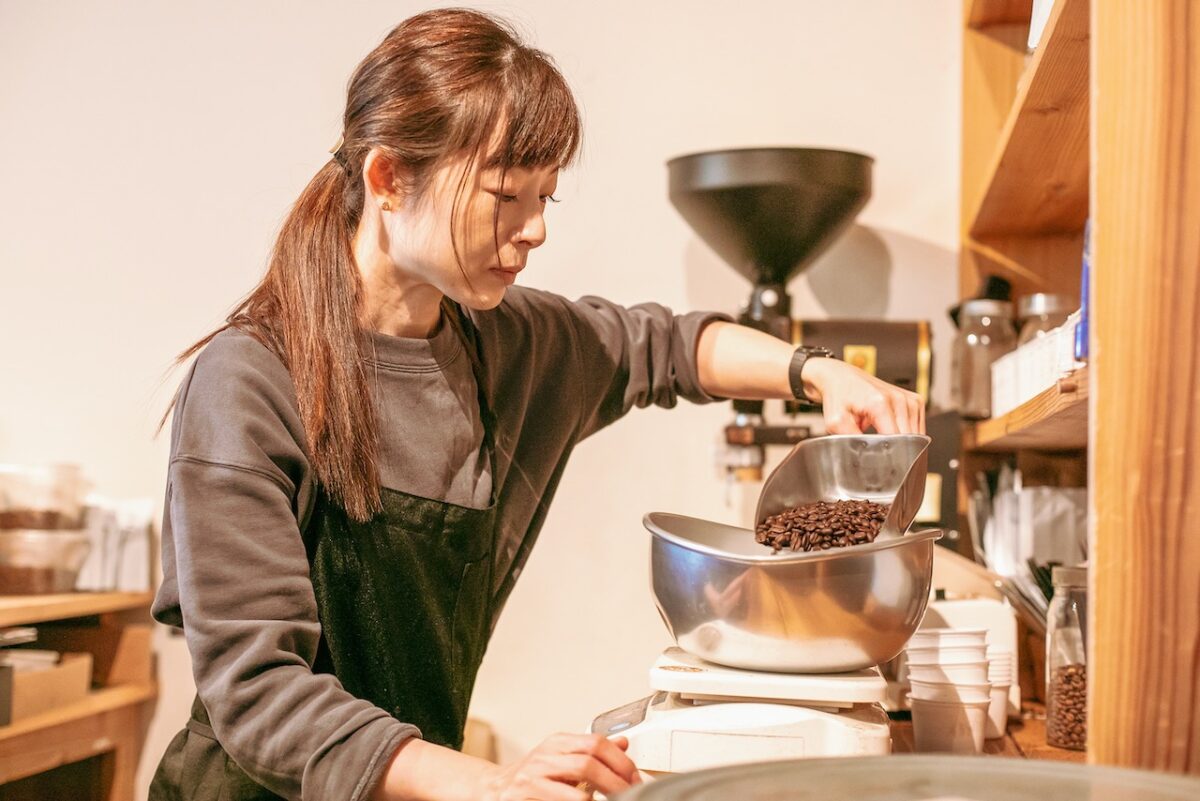
Ueno puts the needs of these women and their families above anything else.
“I can endure hardships with them. I’m willing to work through the night to help them out of trouble. I’m very fortunate to be able to work with people who make me think that way.”
Ueno decided to start his own shop after he witnessed firsthand how women struggled to stay in the coffee industry.
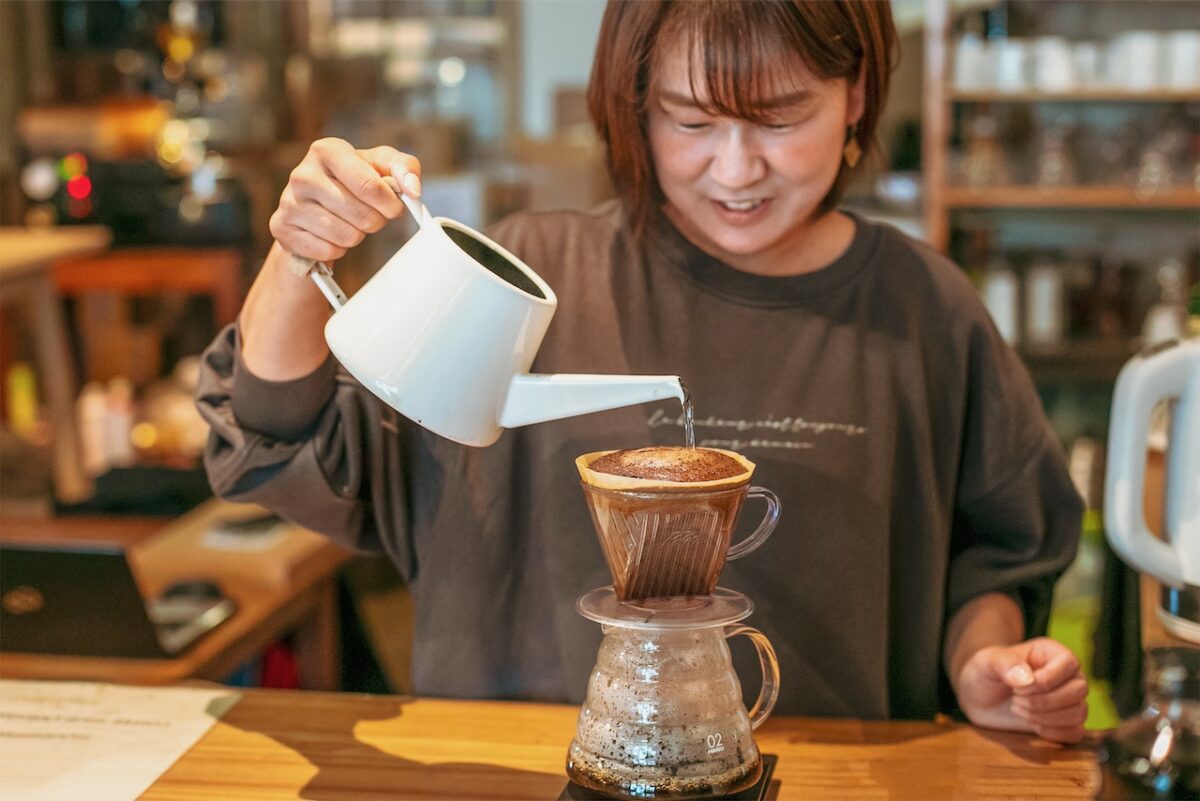
“Around 15 years ago, over 90% of baristas I knew were temporary workers. They worked long hours, but made just 1.8 million yen or less a year. In addition, they had a mere half-a-day off per week, which had to be spent on practicing latte art with expensive beans and milk they bought themselves. That was the norm for most baristas,” Ueno recounts.
“Women can’t continue to work in an environment like that. After they marry and give birth, there is no place left for them to return. I’ve seen people quit their jobs in tears. And I thought that there was no future for an industry where people had to leave despite being good at their jobs. So I wanted to create a company where people can continue to work if they want to.”
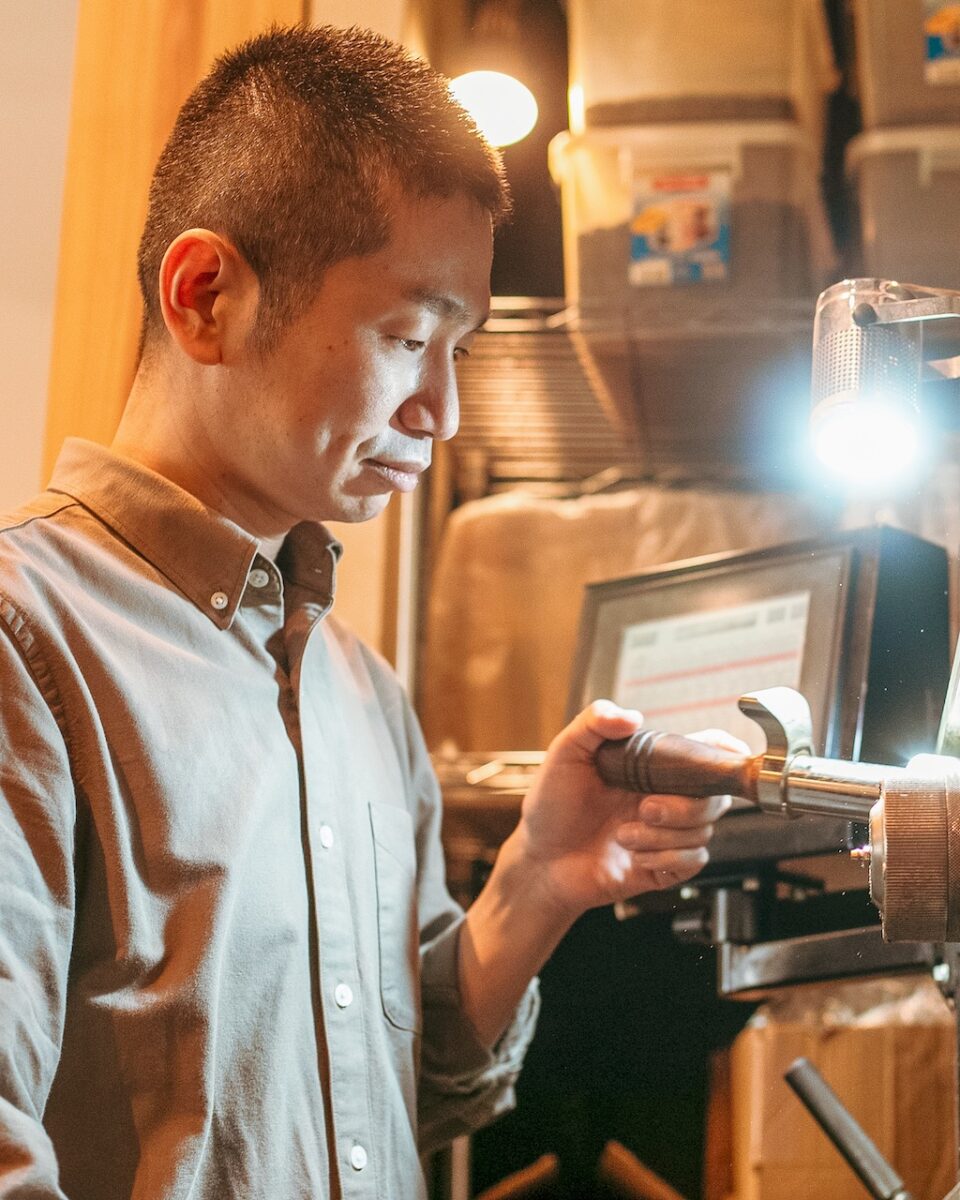
Ueno was in hospital as a bone marrow donor in 2014, just before he opened his shop, when he learned about Child Chemo House, a treatment facility for pediatric cancer near the hospital. That’s when he decided to open his shop in the area.
“I was really inspired by the facility’s activities. I wanted to do something to help.”
Five and a half years on from the opening of LANDMADE, Ueno still continues to offer free coffee to children at the facility and nearby hospitals as well as their families at least once every month. “It’s tough for children, of course. But their parents also become extremely exhausted. They act normal in front of their children, but actually are in tremendous agony. I hope my coffee helps them relax a little when they open up about their true feelings to doctors.”
Around Christmas every year, Ueno works with a nonprofit to create a catalogue of items from which children can choose a gift. An increasing number of businesses and shops have joined the cause in recent years. In one event organized by green coffee beans importer Volcafe, part of the proceeds was donated to Child Chemo House.
Ueno is just doing what he can to help others — without expecting any returns or private gains.

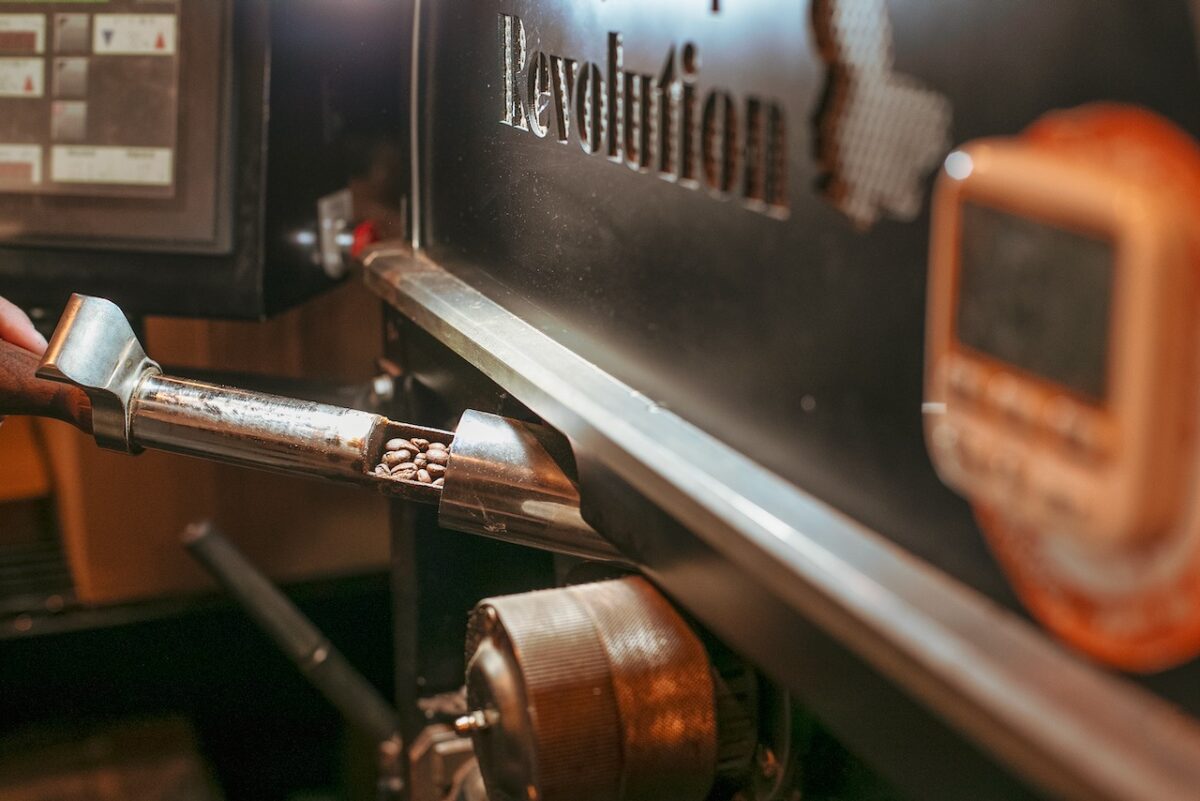
“I was the only one rewarded. I felt empty.”
Ueno’s altruism traces its roots to his early life, when he struggled with a troubled home environment. His family ran a small liquor shop. Its sluggish sales drove his father to drink excessively.
“My father wound up drunk every day and hit my mother. I got hit, too, trying to stop him. I was only a child. So no matter how hard I tried, he was too strong for me. I thought it was really unfair. My father’s business eventually failed. He disappeared during my first year in high school, leaving my family with a huge debt.”
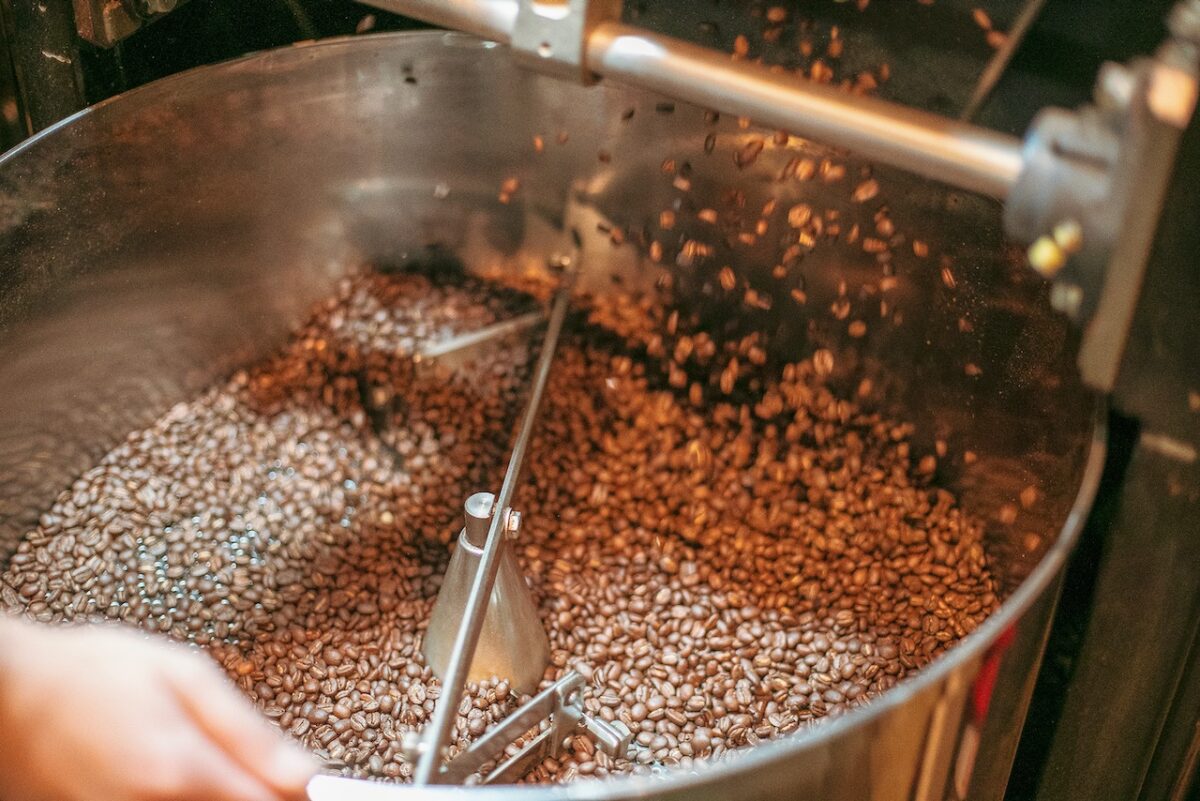
With little money to spend on playing, getting high scores on examinations became a game for Ueno.
“My parents didn’t buy me game consoles like Famicom. They both had to work, so I really had nothing to do. I was so bored that I got into studying. After all, textbooks were the only books I had.”
Over time, Ueno had come to gain test scores high enough to get into an elite school. After entering a six-year secondary school with the help of his mother, Ueno realized his family’s severe financial situation for the first time.
“My classmates’ houses were so much bigger. That’s when I realized for the first time that my family was poor. I think my parents barely scraped by to let me go to school. So when my father disappeared, I felt a sense of guilt, thinking that I was partly responsible.”
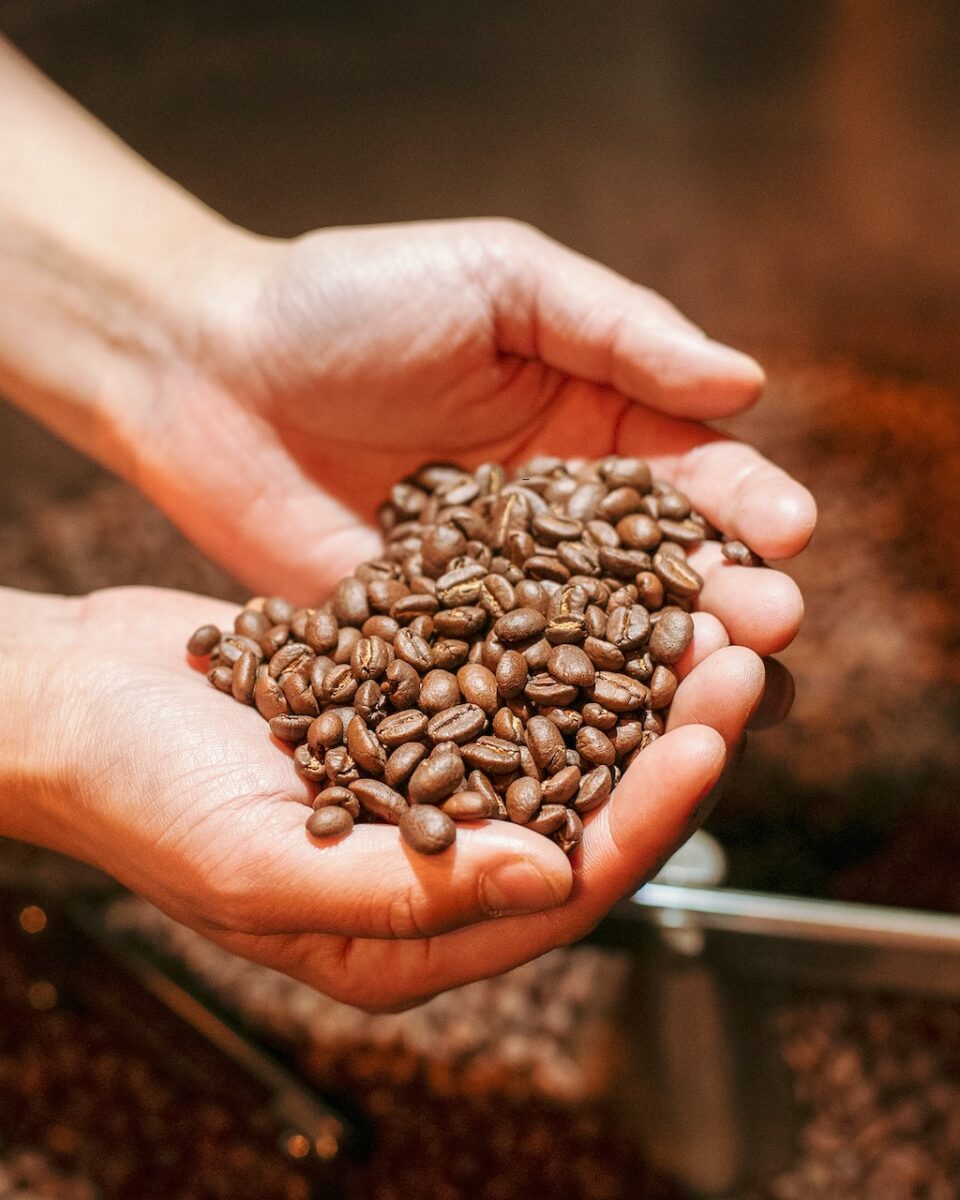
It is around this time that games became Ueno’s pass-time.
“You can’t be delinquent when you have no money. Cigarettes were too expensive, too. So I started playing a fighting game. Back then at arcades, the challenger would pay 100 yen to play. That meant I could keep on playing as long as I kept winning. So I was glued to the game”, says Ueno.
“I read a wide array of books to learn what I could do to become truly strong. For instance, I read books about water, which makes up 70 percent of the human body. I studied stock trading, too, so that I could calculate risks and returns in an instant. I also did some training to improve my posture, reflexes and dynamic vision.”
As Ueno’s talent began to blossom, fellow game players started to support him.
“Many of the people around me were in their 30’s. One of them had the same arcade game at home and let me visit and play. Another man set up an appointment for me to play against a skilled player outside the city and gave me a ride and covered my accommodation. They really helped me a great deal. I was lucky. Without those people, I wouldn’t have become absorbed in the game as much as I did.”
Ueno eventually topped the national rankings twice. But it left him with ambivalent feelings.
“Those guys who supported me were happy for me. But I felt a sense of emptiness because I was the only one to be directly rewarded by my wins. That’s why my encounter with coffee was special, because my hard work can help others.”

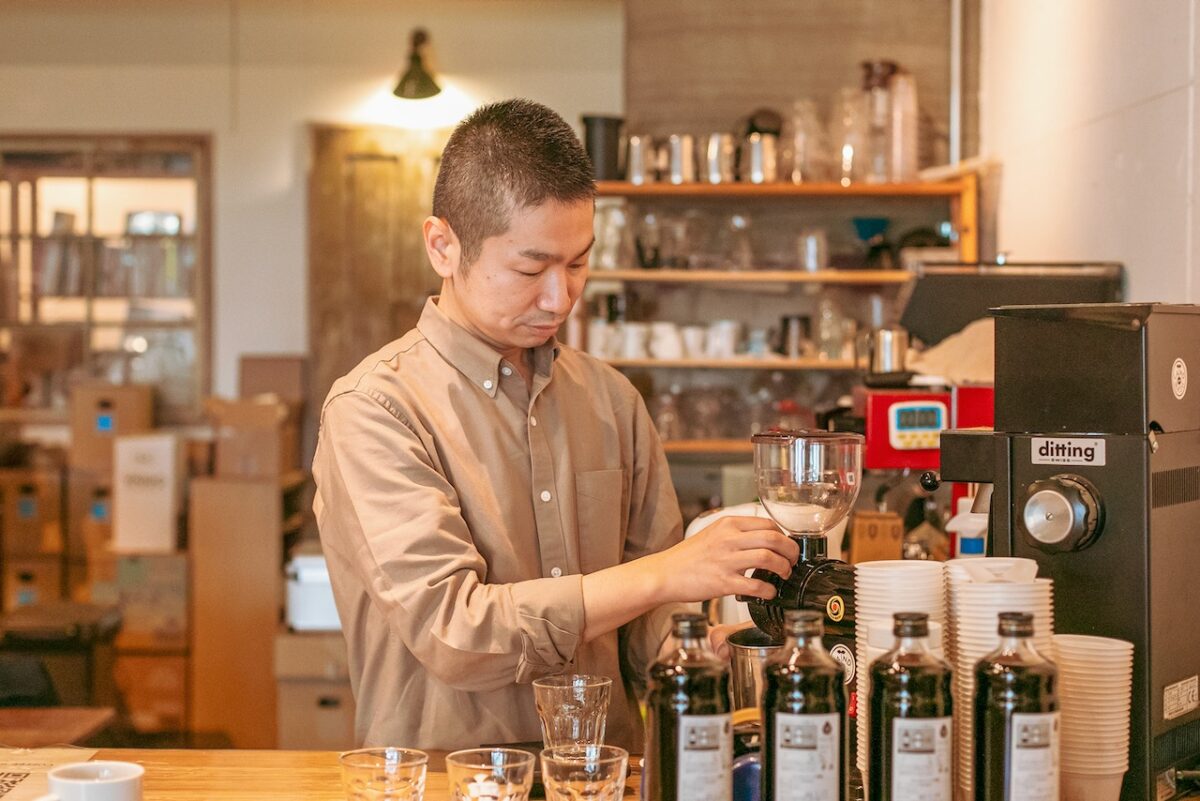
Overcoming distaste for coffee
Ueno hadn’t been able to drink coffee since he was a child. His coffee journey began when he took charge of making drinks at an Italian bar where he started working after graduating from high school.
“I actually wanted to become an accountant. But I had so much fun working at the restaurant. It brought me joy to have customers directly thank me for what I did.”
“I was determined to do whatever it took to work in the restaurant business. That was how I started learning about coffee. I initially thought coffee was just a bitter drink. On the other hand, a lot of customers at the restaurant ordered coffee. So I realized that I wasn’t able to enjoy coffee because of my ignorance.”

While working a full-time role at the Italian bar, Ueno started a part-time job at a Starbucks cafe in the early hours. That experience didn’t go so far as to turn Ueno into a coffee lover. But it offered Ueno his first peek into the harsh lives of coffee producers, and prompted him to learn more about the coffee industry.
Starbucks bought coffee beans from farms for a rate above the market price if the beans met the company’s own standards. Inspired by the company’s commitment to paying producers a price they deserve, Ueno developed a desire to delve deeper into the world of coffee.
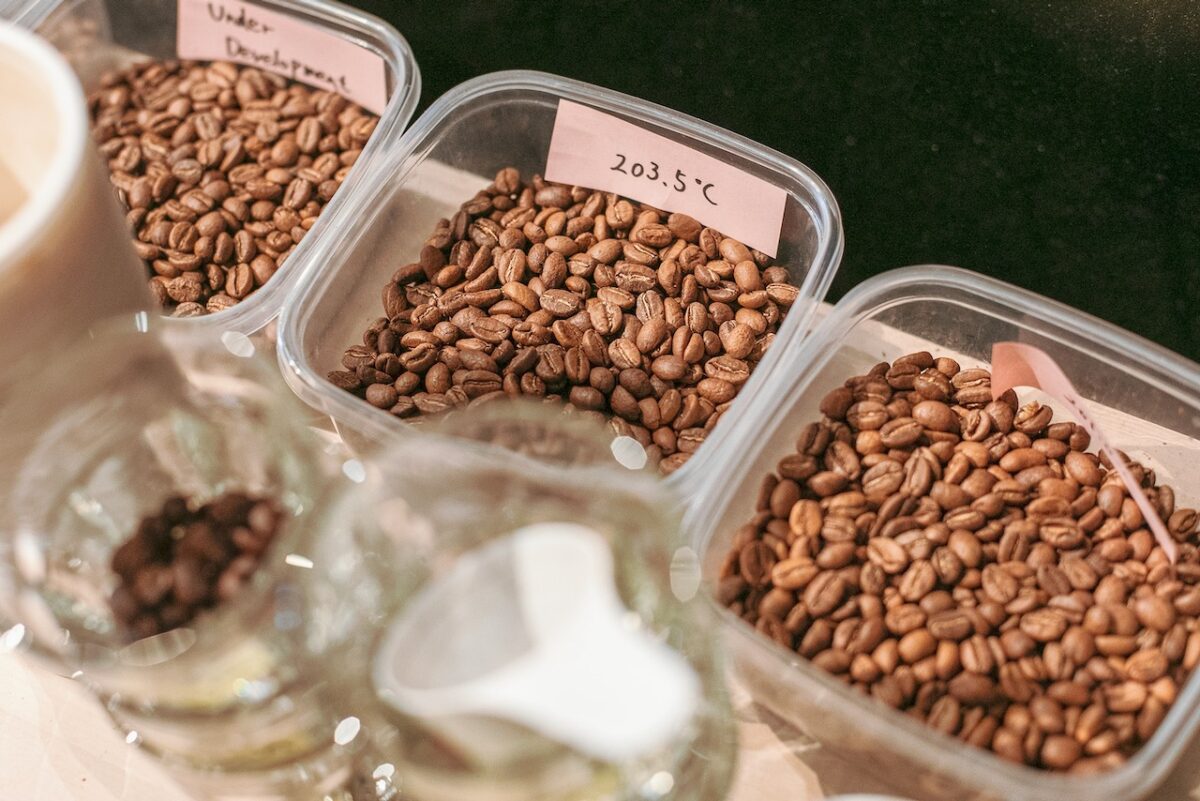
“I figured I would have to familiarize myself with the raw materials, or coffee beans, if I wanted to work in this industry. After about 18 months of looking for a roasting job, I was offered a position at Matsumoto Coffee thanks to a referral from an acquaintance.”
Until Ueno joined Matsumoto Coffee, he didn’t know that the company was a green coffee dealer, handling everything from import to wholesale and retail. The day-to-day operations ranged from roasting green coffee samples to communicating with customers and selling roasted coffee to consumers. Although Ueno did accomplish his long-held wish of roasting coffee soon afterwards, gaining the skills needed was anything but a smooth sailing.
No one showed him how to roast, let alone taught him techniques. He was told to do it nonetheless. With everything left up to him, his coffee didn’t taste good, as was only to be expected. He was clueless as to what he did wrong, at a loss what he should do to get better.
“I had no choice but to start from scratch. So I devoured book after book. I tried all pieces of information I could get my hands on and stuck with a few that seemed to work.”

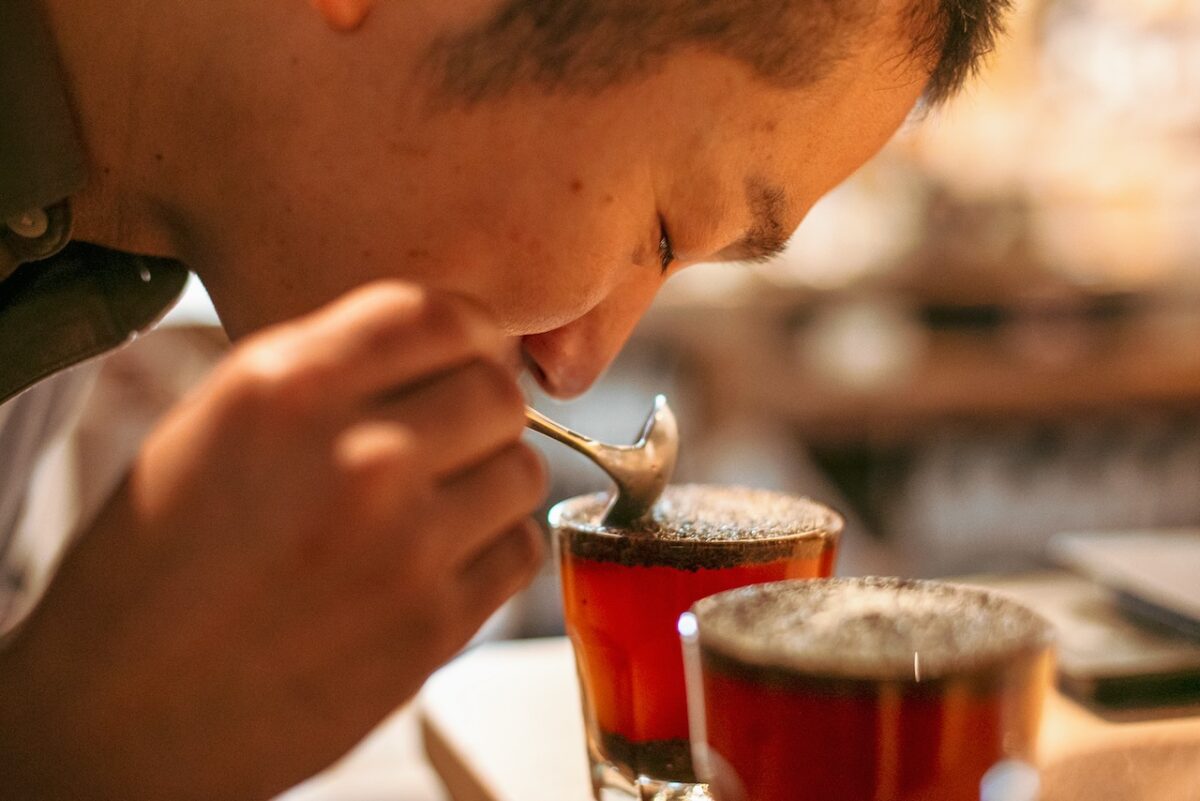
Taste disorder opens opportunity to rebuild taste
Ueno’s devotion to work came at a cost as stress began to take a toll: He suffered a taste disorder around one year after joining Matsumoto Coffee. But even that setback didn’t deter Ueno. Seeing the experience as a chance to learn more about coffee, he set out to rebuild his sense of taste.
“I started by trying to recognize the differences between charred coffee beans and ones with distinctive flavors. I could only taste the hot water in both cups at first. But with more focus, I gradually became able to taste subtle differences. I memorized them as I worked to rebuild my taste as if to set out new parameters for sweetness, bitterness, acidity, saltiness and roughness. After doing this every day for about two years, I had learned to taste differences other people could.”
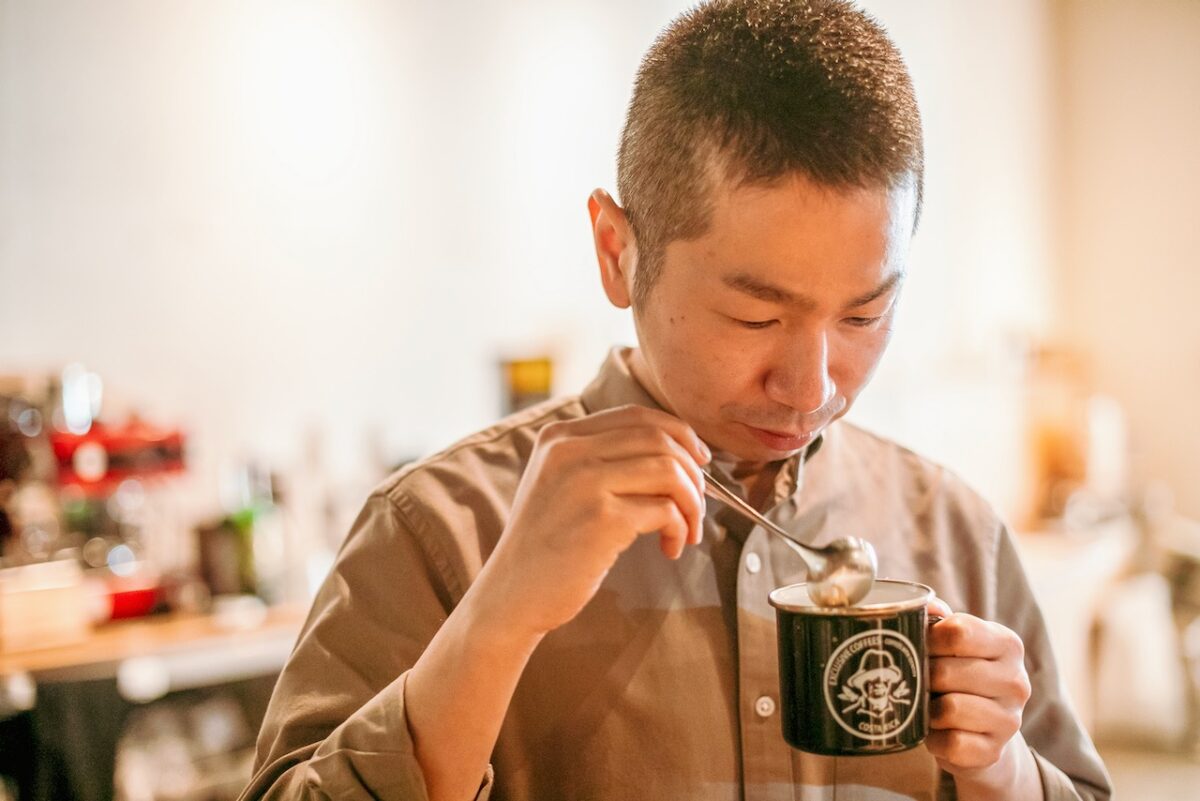
With all odds stacked against him, what kept Ueno hanging in there?
“I was loath to go to work every day. But I’d left my job at the Italian bar despite the massive support I’d received from my colleagues and customers. I didn’t want to let them down. I also thought that it would be good for the industry as a whole if a company like Matsumoto Coffee made profit. It was indeed a tough environment. But the company was very sincere in conducting its business. I could put my wholehearted faith in the company.”
With his roasting skills evolving and the company’s sales growing, Ueno gradually came to earn the president’s trust.
But there is no end to his pursuit. Now the owner of his own shop, he has continued to hold firm to his stoicism, with no sense of complacency.
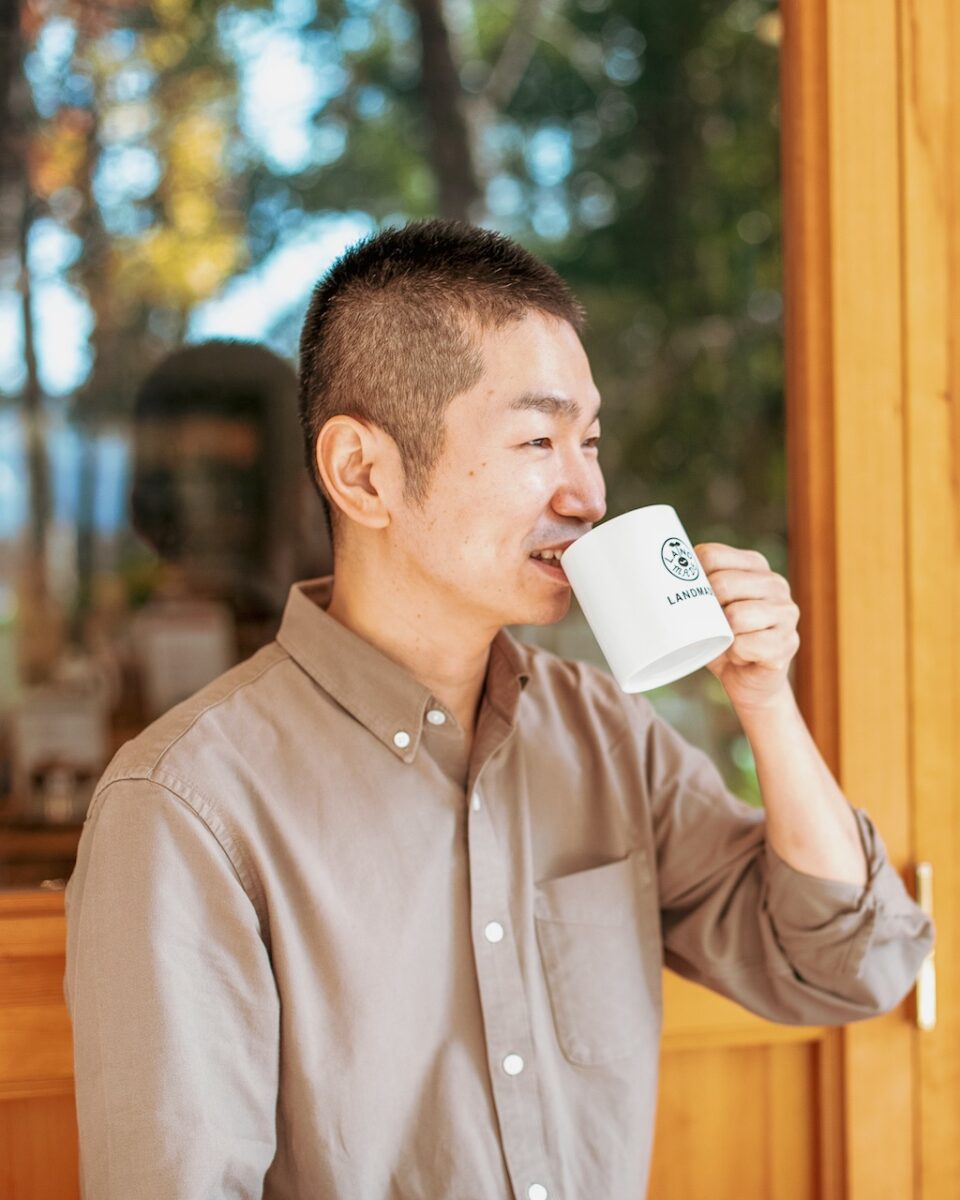
For instance, whenever Ueno eats or drinks something, all those moments are learning opportunities for him.
“One of the important criteria for coffee is mouth feel. We don’t pay much attention to how liquids feel in our mouth in our day-to-day lives, do we? That’s why I make sure to check the feel of everything I put in my mouth. I can only spend so much time honing my skills. So I link every aspect of my life with coffee.”
Ueno is also mindful of his health and diet so that he can continue to work for a long time. He eats only twice a day or less. Outside of work, he doesn’t drink coffee, and drinks only water. After learning that elevated heart rates have harmful effects, he stopped anaerobic exercise and instead took up aerobic exercise.
Every month, Ueno takes part in a workshop to pit his roasting skills against top-notch roasters from around Japan. Participants roast coffee beans of the same kind in advance of each workshop and bring their roasts to the meet. They vote to pick the winner who turns out the most delicious roast.
“The winner of the Japan Coffee Roasting Championship has been a member of our study group for four straight years. Every participant takes our workshops seriously. I strive to be the best in the world. I want to improve further by competing with others. It’s no fun falling behind, after all.”

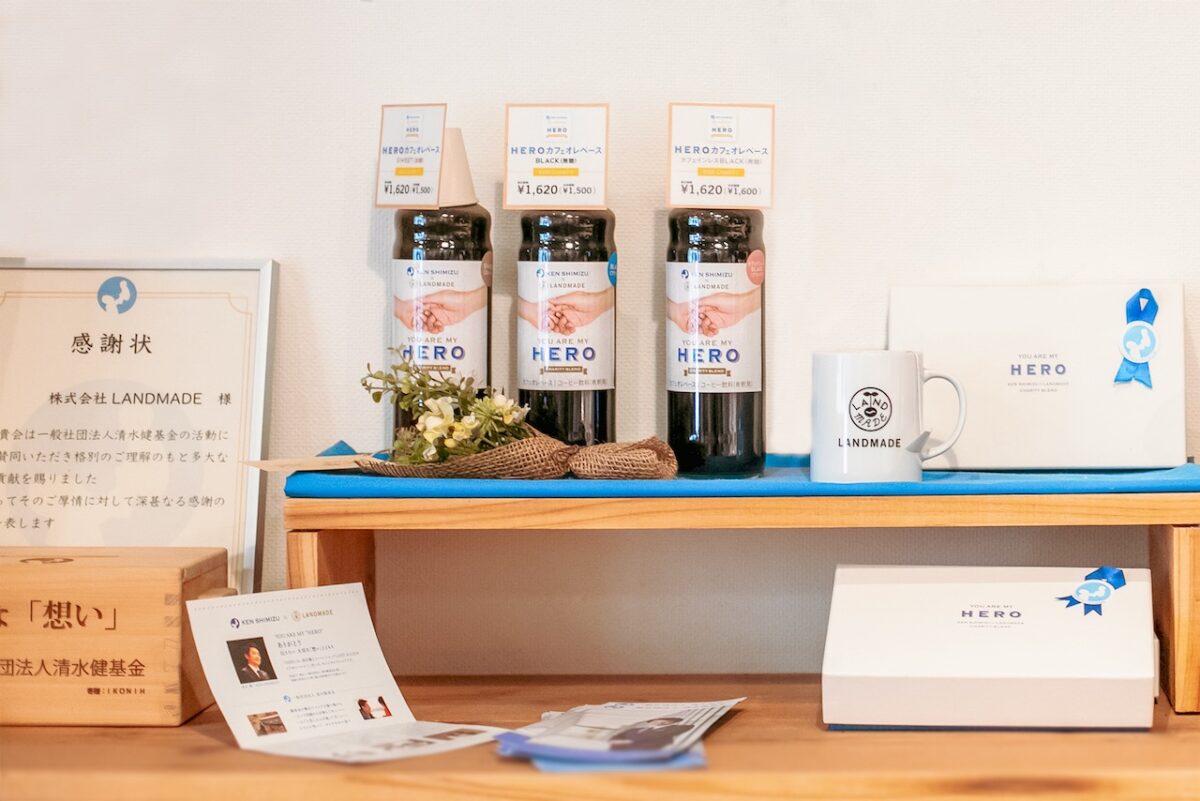
Coffee for the benefit of society
Ueno’s single-minded passion also shows in his yearning to do business for the benefit of people in the industry and those around him.
“I believe contributing to society is an integral part of business. I hope to create a virtuous cycle where an uptick in business trickles down to society. I want to build a community that fixes the inadequacies of the coffee industry and producing countries.”
Ueno doesn’t believe he is doing something extraordinary. In his mind, he is simply offering help to those who need it.
“I’m not consciously trying to help others. I simply want no one in my own industry to be left in a bind.”
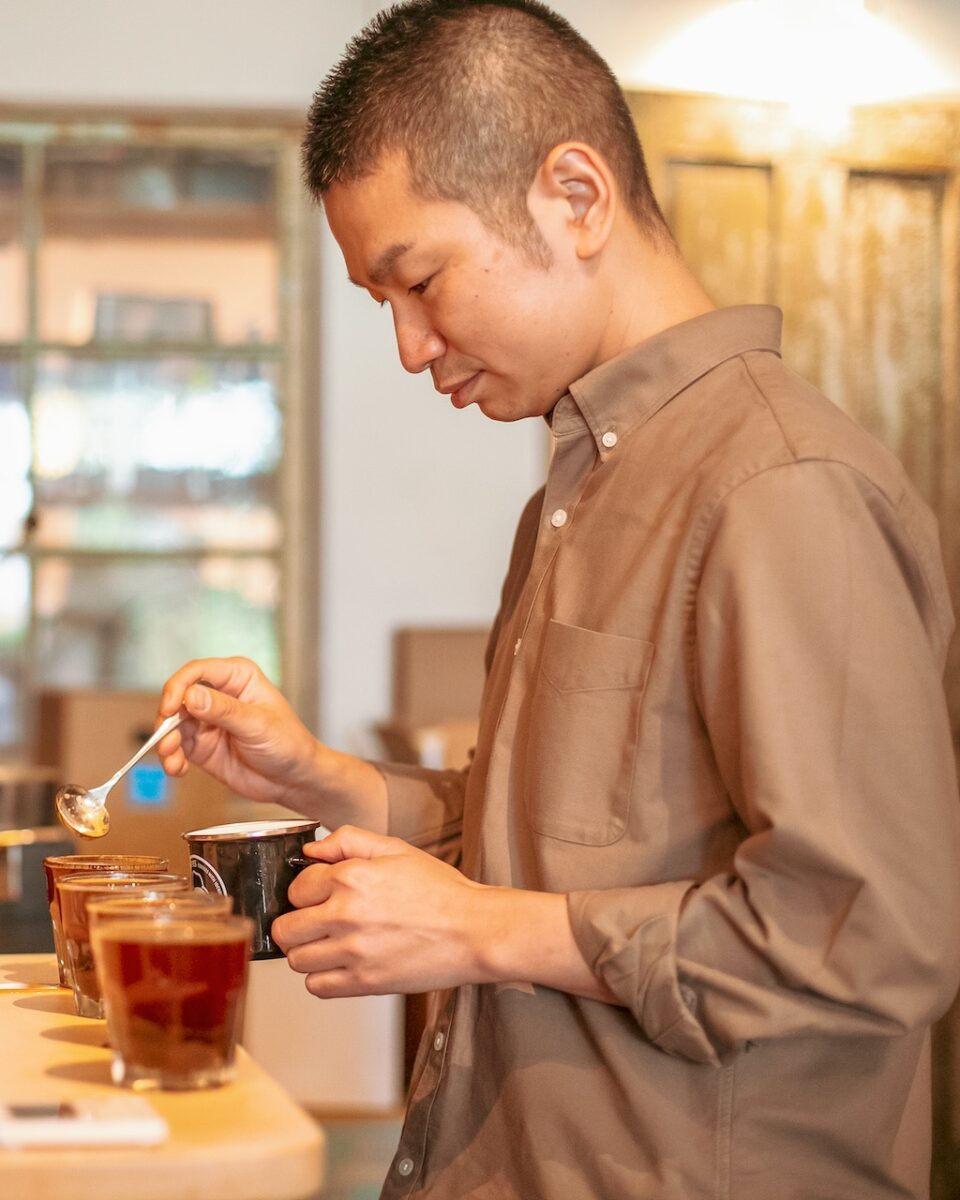
Behind these words lie his feelings toward his own family.
“I wish I could jump on a time machine, travel back to the past and help my family. But that’s not possible. So I remind myself to at least help people I meet now if they are in trouble.”
“I really don’t have much personal desire. All I need to feel grateful is just a set of futon beddings. My friends always tell me my bar for happiness is extremely low. Even when I support a crowdfunding project, I’ll be fine even if I get nothing in return. Maybe that has something to do with my past, when I didn’t have much money.”
If there is any wish Ueno has, that’s to save as many people from an unfair situation as he can. To that end, he has set his sights on widening the scope of LANDMADE’s activities.
“I hope to open a LANDMADE cafe in the future. For instance, pregnant women and mothers with small children would handle roasting and shipping on the day shift. And single women and mothers with grown children could work in the evening. If people have multiple working styles to choose from, it will be much easier to stay at the same company”
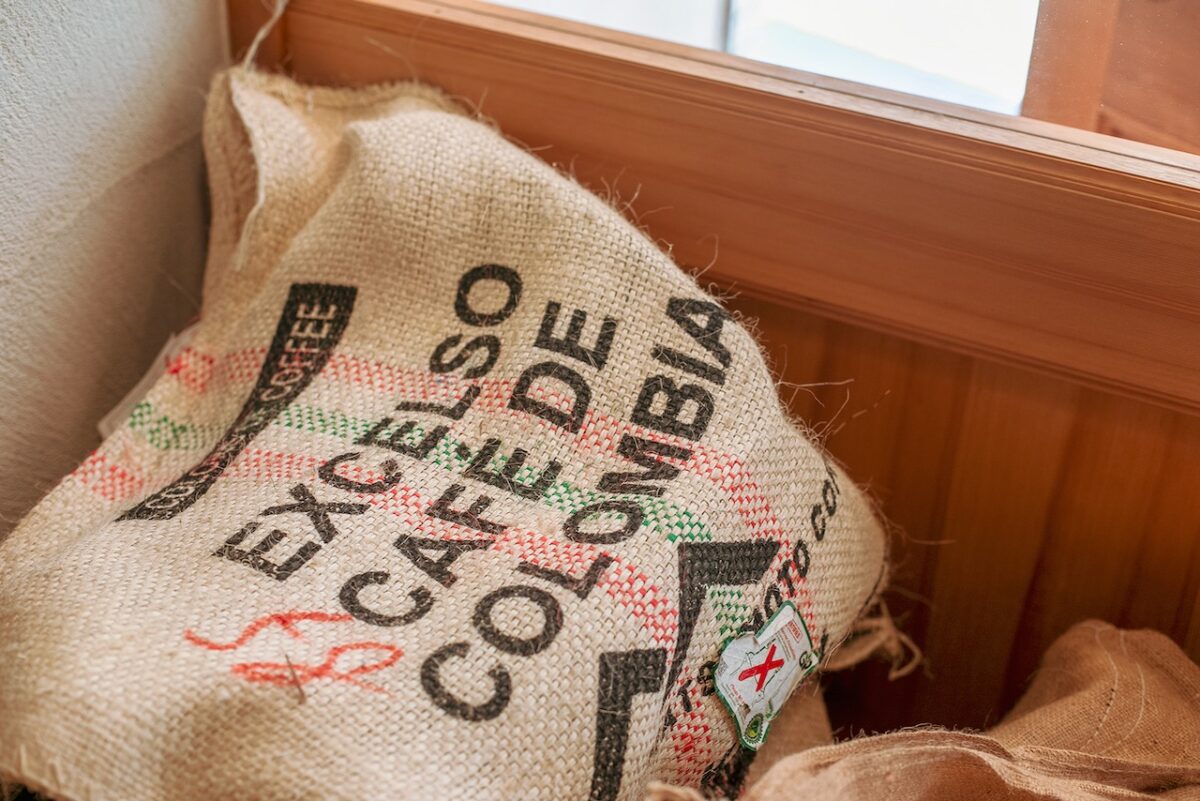
His earnest gaze also extends halfway across the globe to producers, too.
“I’m working on a project with Akihiro Nishino of the comedy duo King Kong. We are planning to buy coffee farms and employ producers to guarantee them stable monthly income and basic living needs regardless of yields.”
“If that plan materializes, our staff can visit farms and experience the whole process from cultivation to harvest. If we sell those coffee beans at our store, we’ll be able to get through to customers in a more persuasive way. In addition, with a stable income, people in producing countries may be able to drink high-quality coffee themselves, rather than only exporting it. That will translate into higher GDP for those nations, too. Many challenges lie ahead. But I want to overcome them one at a time.”
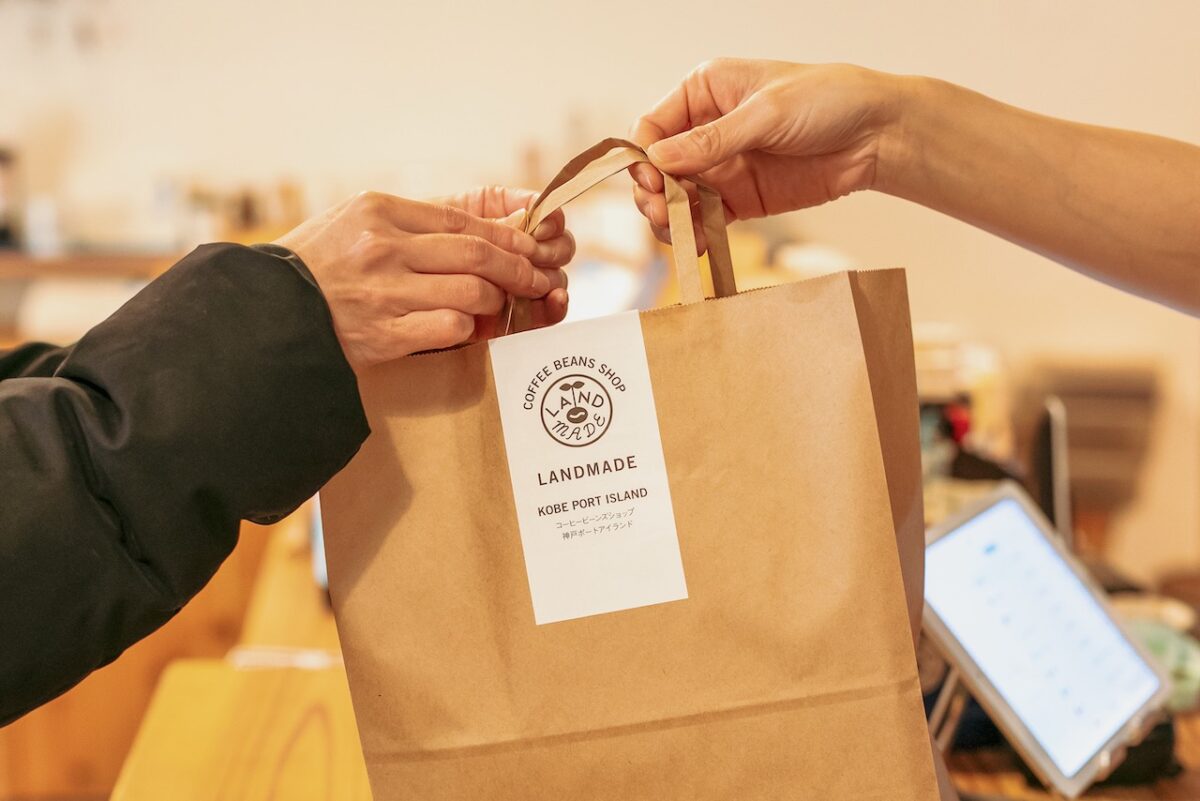
Perhaps when Ueno looks at people around him — his staff, children with pediatric cancer, their parents and coffee producers — , what Ueno sees is a family, each member connected by LANDMADE.
Originally written by KANA ISHIYAMA
Edited by Tatsuya Nakamichi
Photos by Tatsuya Naoe
MY FAVORITE COFFEE人生を豊かにする「私の一杯」
I set aside at least two to three hours of the day for examining roasting. My happiest moment is when I cup and realize that my attitude to roasting and skills have evolved. I feel happy when all my trials and errors have coalesced into know-how, dots are connected to form a line and I realize that I have made an advance – however small it is – and reached a higher level. Moments like that remind me of a time when I was playing games in my teens.
